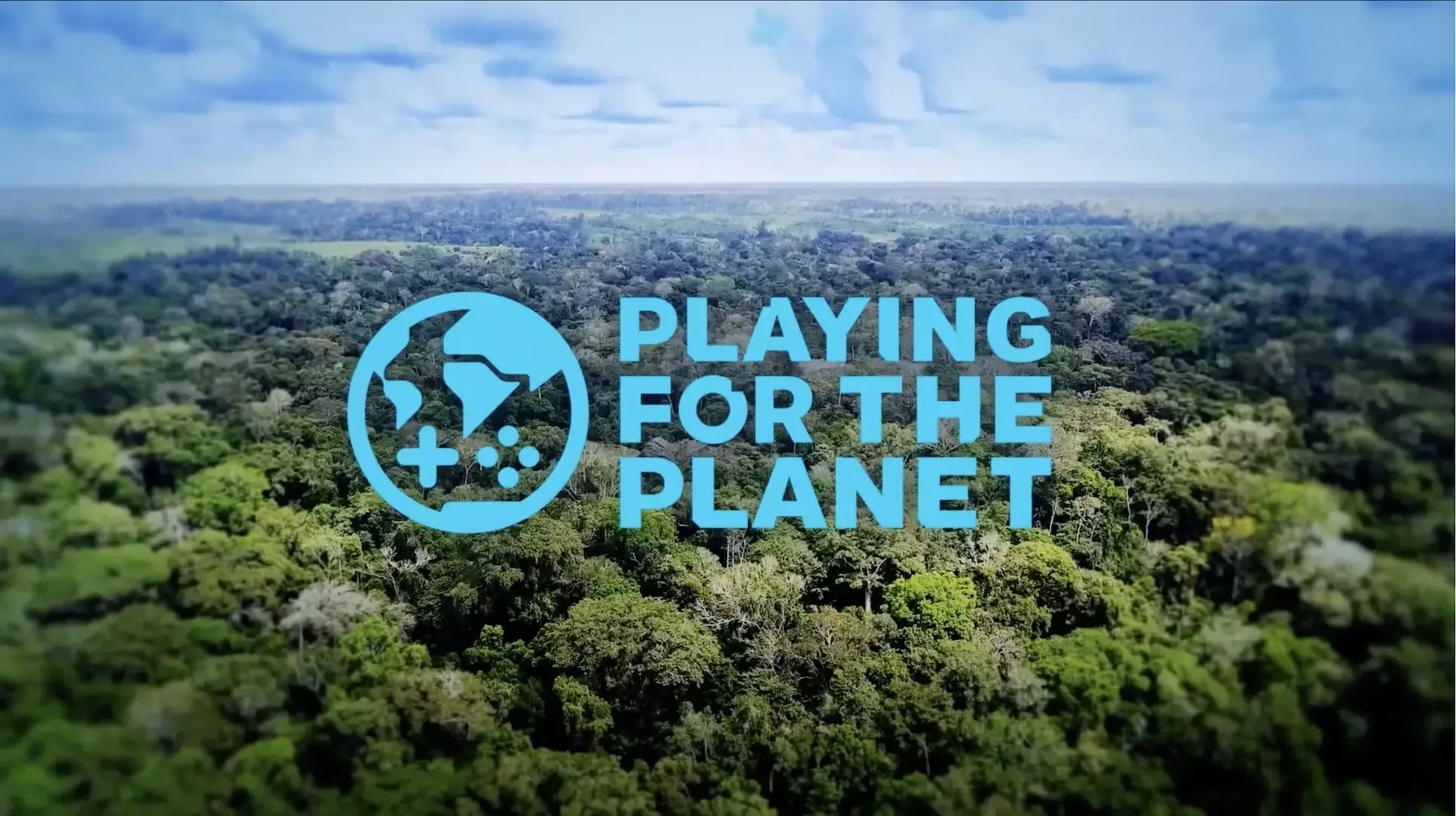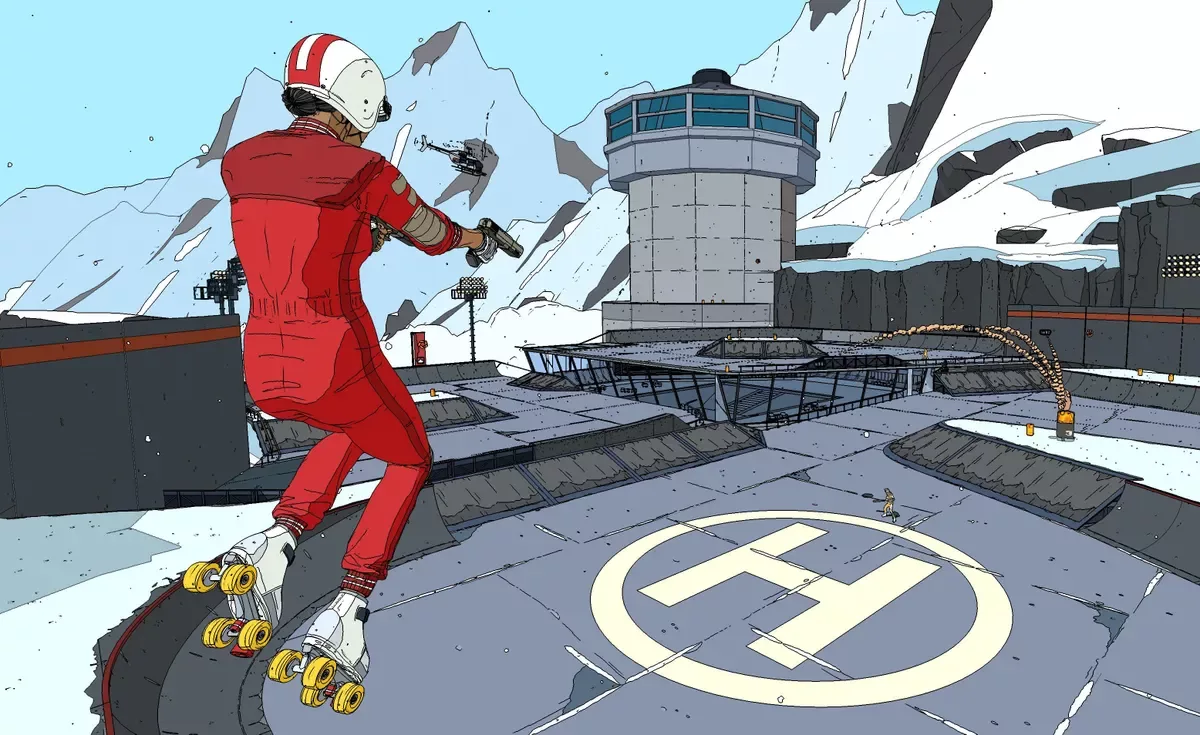It feels like only last week that we hit play on the first of games journalist Will Freeman’s insightful chats with some of the brightest minds in gaming.
A collaborative project developed in partnership with GamesIndustry.biz, UKIE and ourselves, The Playable Futures Podcast accompanies Playable Futures, a collection of insights, interviews and articles from global games leaders sharing their visions of where the industry and medium will go next.
From the rise of VR to the future of mobile and even how players consume games, Playable Futures has covered it all. With another Gamescom under our belt - the birthplace of the Playable Futures Podcast - we wanted to take this chance to reflect on all that we have learned over the past year.
"In eight years' time, I'd like to see the video games industry being the greenest industry in the world and that the players that play games are coming to it, not just to escape, but to give back as well".
That was the view of Sam Barratt, the UN Environment's Chief of Education for youth and advocacy. The United Nations may have felt like a strange place to start, but Will and Sam had lots to say about the Playing for the Planet Alliance, and why gaming is important to an intergovernmental organisation. As a medium that inspires and engages like no other, Sam discussed how games could encourage audiences to act and make a real difference. It’s well worth a listen.

The independent landscape has changed a lot in the past year alone, with more developers moving into publishing themselves. When Will sat down for a chat with Playtonic Games business development manager Stephanie Darrah, nDreams CEO Patrick O'Luanaigh, and Nosebleed Interactive managing director Andreas Firnigl, they discussed the myriad challenges they faced juggling both fields.
“We’ve been in those shoes and we know people who are now trying to be in those shoes,” Stephanie explained. “For us, it fits the model of the industry as a whole. It’s about helping people. It’s about trying to make it a better space… You connect with people who are needing that support and suddenly you’re a consultant, or a publisher.”
Community remained a key topic when Will caught up with Mark Reed, Founder of Heaven Media and Romain de Waubert de Genlis, Studio Head and Chief Creative Officer at Amplitude Studios, to reflect on the role that the consumer plays in shaping the gaming landscape. Both took a long view on the importance of factoring community into marketing strategies early in a campaign - and the key of paying heed to their needs. You can listen to their chat here.
“What people usually don’t like when they try to interact with a team is they will feel that they’re not being listened to,” Romain adds. “We have one million players, so it’s hard to tell everyone to listen to everyone at any one time, but it’s all about transparency.”
It’s a theme that cropped up again during Will’s conversation with Jean-Paul Hardy, general manager of Gearbox Amsterdam, and Thomas Hegarty, founder and director of Roll7 about the future of publishing. Both veterans of the publisher/developer relationship, they drew on their many years of experience in publishing and developing to reflect on what makes the industry tick. Interestingly, they both settled on the fundamentals that characterise the two, whatever the era: trust and open, frank communication.
"The publisher still has that same love of gaming that a developer has," Jean-Paul states. "They just look at it in a different way because we have different expertise."
"Community is absolutely key. It always has been," adds Thomas, "There has been a big shift in the last couple of years where we actually see active changes within the game from people watching live on Twitch and that makes you think very differently about the game from the design point of view, which goes all the way through to how to release the game."

The provision of talent plays a key role in all things games, yet the sector finds itself at a crossroads in terms of future proofing recruitment for the medium and long term success of the sector. That was the focus for Next Gen Skills Academy co-founder Marcia Deakin, UKIE head of education and Digital Schoolhouse director Shahneila Saeed, and Futurlab head of people Keira McGarvey when they discussed how best to join the dots between industry and education.
“The games industry has long had challenges with the talent pipeline,” Marcia explains. “We don’t have enough people with the right skills coming into the industry… In terms of entry level roles, there are lots of people who want to come in and we have lots of universities and colleges producing talent for us, but they don’t always have the right skills further up the talent pipeline.”
“Right now [the sector is] very limited to people who have a further education to break into the industry in even a junior role,” Keira adds. “If we start earlier – in early education – people who don’t have the ability to go to university or college won’t find it a blocker for them getting into an industry or a career that they want to fulfil.”
Another highlight was Will’s chat with Shawne Benson, Global Head of Third Party Portfolio & Acquisitions at Sony Interactive Entertainment and Laila Shabirm, Founder & CEO of Girls Make Games about the role of women in games. For a sector often associated with toxic stereotypes around gender, their conversation looked at the ways in which the industry has changed to encompass more diverse voices and how the industry continues to benefit as a result.
“I think it’s pretty obvious that if we have more women doing anything, everybody wins,” Laila posits. “From an industry standpoint, we have more creators, which means we have more players. That kind of goes hand-in-hand… It’s about thinking about how these creators expand our influence.”
“I think about it from the business perspective,” Shawne adds. “How can we create a more thriving community of content that feels like there's a little bit of something for everybody, and welcome different ways to play? I've seen so much great innovation from diverse creators that I wouldn't see from big AAA studios that are predominantly not as gender diverse as I would like, and it's getting there.”

Closing out the series was a look at the impact of AI within games, guided by the insights of Mitu Khandaker, CEO and Co-Founder of mobile studio Glow Up Games and the former Creative Partnerships Director at Spirit AI, an artificial intelligence company that uses language detection technology in online spaces.
Khandaker’s focus as a game developer is to create games and narrative stories for diverse audiences, with AI remaining a foundational interest due to its potential to craft unique gameplay mechanics that previously weren’t possible. She also reflected on the notion of authorship and the idea of roles being erased by technology.
"The idea of authorship is still incredibly important to this," she states. "Where the authorial background to these systems have come from is still super important… You still need that curatorial hand in all of this."
Finally, in a bonus penultimate episode, we heard from former CEO of UK games industry trade body UKIE, Dr. Jo Twist, about how the industry has changed over the past decade. Her insights summarise the wider impact of games beyond play. After all, the industry plays host to a wealth of different talents across the creative spectrum and UKIE has taken a key role in fostering this. It's something that she hopes will continue well into the future.
"We're talking about the skill sets that are going to be driving the future economy. When we're looking at a more algorithmic world that we're moving into, you need a new kind of literacy and that is exactly what games people have. When you're talking about programming or design or systems thinking, those are the skill sets that you need in order to navigate the future."
The above picks are just a taster of the hours of insight and discussion to be found in the first series of the Playable Futures Podcast and we’d strongly recommend checking all of them out when you have a chance. It’s been a real pleasure partnering with GamesIndustry.biz and UKIE on this project and we’re looking forward to seeing where things go in the future.
You can find the whole Playable Futures podcast series here.




